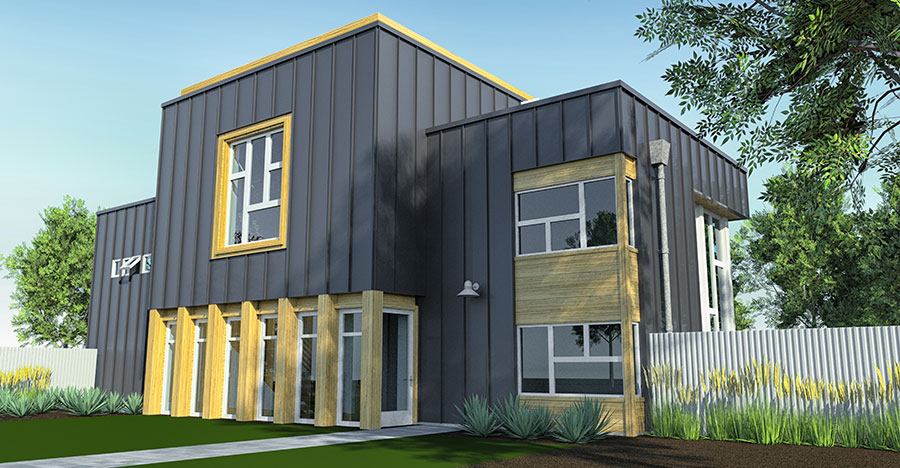What is a detached accessory dwelling unit (DADU)?
Updated Mon, Feb 2, 2026 - 4 min read
Top blog articles
Have you ever heard of a DADU? It stands for Detached Accessory Dwelling Unit. It’s basically a small, self-contained living space built on the same property as your single-family home.
These accessory structures, often called backyard cottages, offer a variety of benefits for homeowners and their family members.
Whether you’re looking to accommodate aging parents, create additional living space, or generate some rental income, adding an Accessory Dwelling Unit (ADU) or DADU could be the perfect solution.
What is a DADU?
DADU aka mother-in-law suite is a specific type of ADU that is completely detached from the main home. Unlike a basement apartment or an over-the-garage studio, a DADU is a separate structure located elsewhere on your property. It comes with all the essentials for living quarters, including a kitchen, bathroom, and often a small sleeping area. This makes it a fully functional home in its own right.
DADUs are usually smaller than the primary house, yet they add valuable living space. Whether you’re designing and building one from scratch or converting an existing structure, like a garage, it’s a flexible way to expand your housing options.
A contemporary DADU provides all the comforts of home, coupled with the perks of solitude, privacy, and a lawn/garden view.
Who benefits from DADUs and ADUs?
Building a DADU can be ideal for keeping aging parents close by with their own private living quarters, generating rental income by offering affordable housing, or simply adding extra space for family or guests. Or as a home office.
You could even rent out the property long-term or put it on Airbnb for short-term stays. Whether it’s for independence, security, or cash flow, a DADU is a versatile solution for a range of needs.
What is the average size of a DADU, in the United States?
The average DADU size ranges from 800 to 1,000 square feet, depending on your property’s lot size and the local zoning laws. A tiny DADU with a kitchen, bathroom, and washing machine may be as small as 200 square feet.
How large a DADU size is depends on your location. For example, in LA County, the largest size permitted for a detached ADU is 1,200 square feet, while in San Francisco, the maximum allowable size is 850 square feet.
Is building a DADU a smart investment idea?
If you’re considering housing aging parents without the high cost of a retirement home, a DADU could be a smart investment, redirecting funds toward a mortgage instead. A DADU also adds home value and rental income potential, making it ideal if local zoning permits.

How should you design a DADU?
Before adding a DADU, check local zoning laws. Some areas don’t allow them and there may be size or placement rules. The building permit process takes time, but it’s worth it for a space that’s up to code.
When designing, focus on functionality; a cozy DADU needs essentials such as a sleeping area, kitchen, bathroom, and living space.
Open floor plans and multi-purpose furniture can help you maximize your living area. You’ll also want to think about the overall aesthetic and how your backyard cottage will complement your main home. From simple studios to layouts with separate rooms, the DADU options are endless!
Why should Americans encourage ADUs and DADUs?
DADUs and ADUs contribute to the diversity of housing choices in single-family neighborhoods. With their smaller size and absence of extra land costs, these units present a more affordable housing option in neighborhoods where homes may be financially out of reach for many.
Moreover, they cater to the housing requirements of various households, including older adults seeking to downsize, seniors on fixed incomes, lower- and middle-income families, homeowners facing disabilities or specific needs, and multigenerational families.
The flexibility, stability, and potential supplementary income offered by ADUs allow households to adapt to their changing needs over time.
Last thoughts
Always consider your budget and zoning regulations before diving into a DADU project. If your zoning rules don’t allow the size you need or if it’s a financial burden without a clear plan for income, it might not be the right move for you.
That said, DADUs are versatile additions to homes, providing extra rental income or serving as flexible living spaces for various needs. They offer a sustainable and aesthetically pleasing solution to housing shortages and affordability concerns.
Read more: What is MAO in real estate









